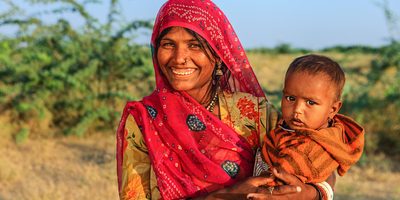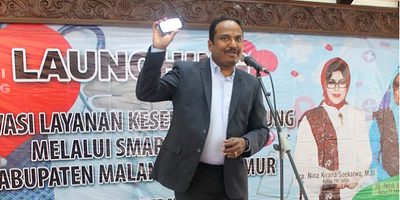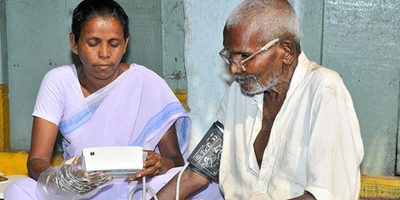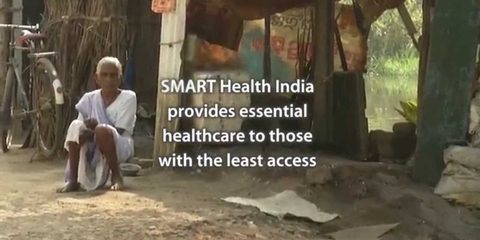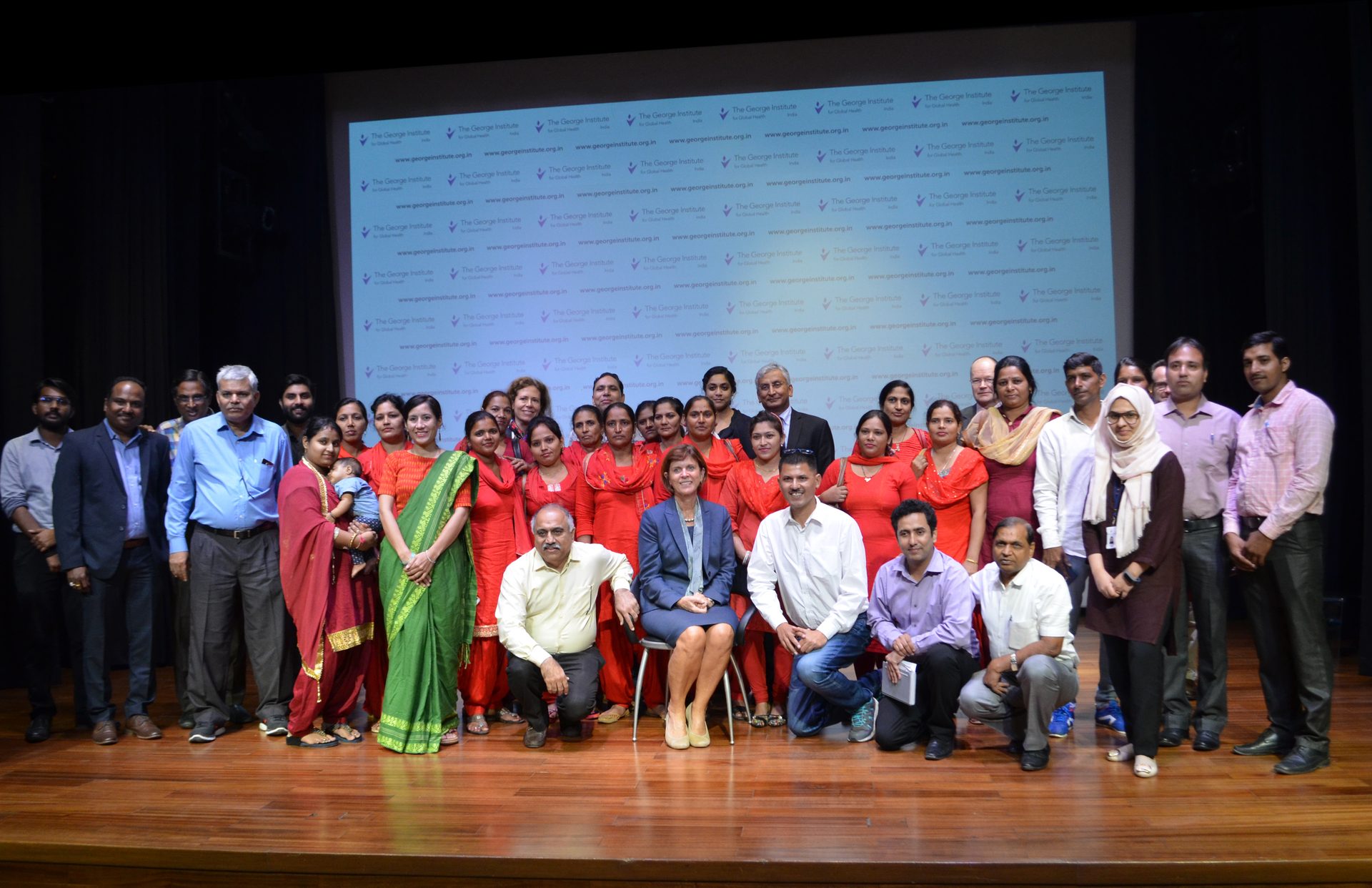
Showcasing SMARThealth technology for better management of chronic conditions in the community
The George Institute for Global Health India today hosted a showcase of its SMARThealth technology, designed to help community health workers identify and treat people at high risk of chronic conditions such as diabetes and heart disease.
Professor Louise Richardson, Vice-Chancellor of the University of Oxford, with which The George Institute UK is affiliated, was Chief Guest for the occasion. Professor Richardson and other attendees saw the technology in action, as female community health workers, known as ASHAs, demonstrated the smartphone-based system’s functionality on a patient and described its use in primary care settings.
Professor Vivekanand Jha, Executive Director of The George Institute for Global Health India, said:
“Digital technology such as SMARThealth holds the potential to strengthen health systems and help achieve universal health coverage in under-resourced settings, for example by supporting frontline health workers to identify and treat people at high risk of chronic diseases in disadvantaged and hard-to-reach communities.”
Heart disease is the leading cause of death for women in India. However, in rural parts of the country in particular, women at risk of the condition may not be identified, because they lack access to healthcare, health services are patchy, and there are shortages of health workers. The SMARThealth technology is now being adapted to help ASHAs identify and manage the care of women at high risk of heart disease, stroke and diabetes, both before and after pregnancy, through the SMARThealth Pregnancy programme.
After watching the demonstration, Professor Richardson trialled the technology, taking blood pressure and sugar readings to develop a risk score for a profile of chronic conditions.
During her speech, Professor Richardson commented that the SMARThealth initiative would have completely failed were it not for the work done by the community health workers in the field.
“The project is a perfect marriage of research into medical care and technology and knowledge from the field. Too often innovations fail because it does not involve people from the community or capture insights from the field.
The project is succeeding because of the incredible work of the women community health workers, Accredited Social Health Activists, out in the field. Through their community work, these women are also helping to break down barriers to gender equality.”
Professor Richardson is in India to visit projects linked with the University of Oxford, and to explore possibilities for further collaboration.
In his closing remarks, Professor Jha said: “Today has been a fantastic opportunity to showcase an Oxford-India research programme that aims to bring state-of-the-art healthcare to people living in rural India.”
First trialled in Andhra Pradesh in South India, the SMARThealth programme has been extended to a second location in North India, and to East Java in Indonesia, to assess whether it can be scaled up in different contexts, potentially helping to transform healthcare systems and improve the lives of tens of millions of people.




